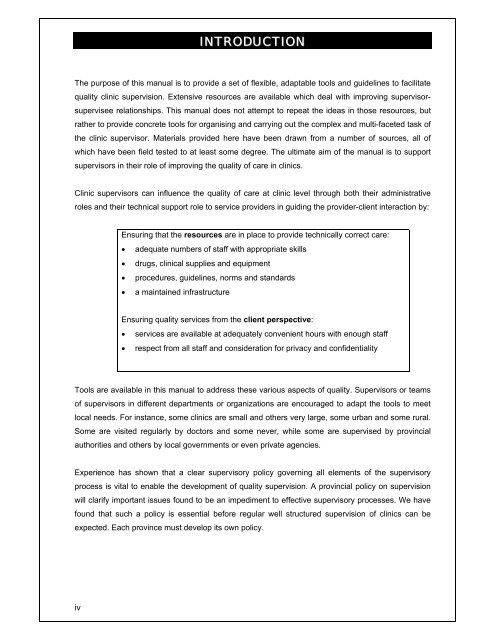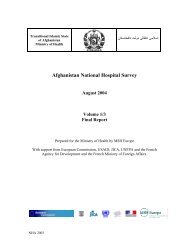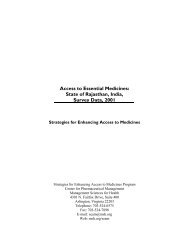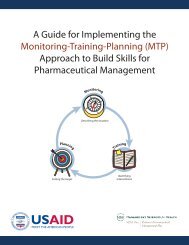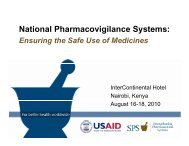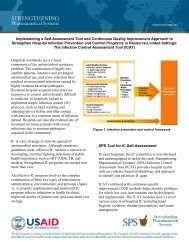CLINIC SUPERVISOR'S MANUAL - Management Sciences for Health
CLINIC SUPERVISOR'S MANUAL - Management Sciences for Health
CLINIC SUPERVISOR'S MANUAL - Management Sciences for Health
You also want an ePaper? Increase the reach of your titles
YUMPU automatically turns print PDFs into web optimized ePapers that Google loves.
iv<br />
INTRODUCTION<br />
The purpose of this manual is to provide a set of flexible, adaptable tools and guidelines to facilitate<br />
quality clinic supervision. Extensive resources are available which deal with improving supervisorsupervisee<br />
relationships. This manual does not attempt to repeat the ideas in those resources, but<br />
rather to provide concrete tools <strong>for</strong> organising and carrying out the complex and multi-faceted task of<br />
the clinic supervisor. Materials provided here have been drawn from a number of sources, all of<br />
which have been field tested to at least some degree. The ultimate aim of the manual is to support<br />
supervisors in their role of improving the quality of care in clinics.<br />
Clinic supervisors can influence the quality of care at clinic level through both their administrative<br />
roles and their technical support role to service providers in guiding the provider-client interaction by:<br />
Ensuring that the resources are in place to provide technically correct care:<br />
• adequate numbers of staff with appropriate skills<br />
• drugs, clinical supplies and equipment<br />
• procedures, guidelines, norms and standards<br />
• a maintained infrastructure<br />
Ensuring quality services from the client perspective:<br />
• services are available at adequately convenient hours with enough staff<br />
• respect from all staff and consideration <strong>for</strong> privacy and confidentiality<br />
Tools are available in this manual to address these various aspects of quality. Supervisors or teams<br />
of supervisors in different departments or organizations are encouraged to adapt the tools to meet<br />
local needs. For instance, some clinics are small and others very large, some urban and some rural.<br />
Some are visited regularly by doctors and some never, while some are supervised by provincial<br />
authorities and others by local governments or even private agencies.<br />
Experience has shown that a clear supervisory policy governing all elements of the supervisory<br />
process is vital to enable the development of quality supervision. A provincial policy on supervision<br />
will clarify important issues found to be an impediment to effective supervisory processes. We have<br />
found that such a policy is essential be<strong>for</strong>e regular well structured supervision of clinics can be<br />
expected. Each province must develop its own policy.


